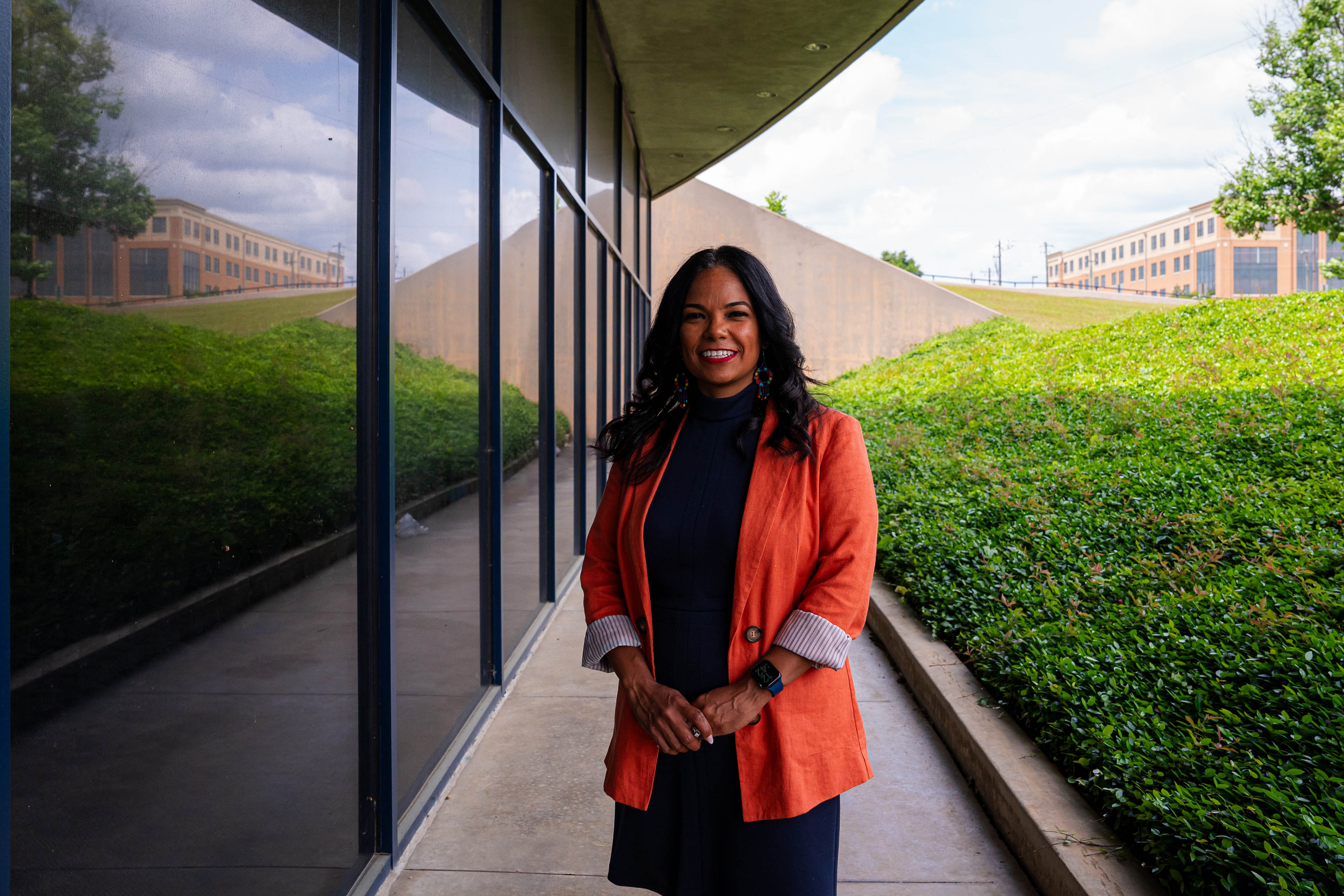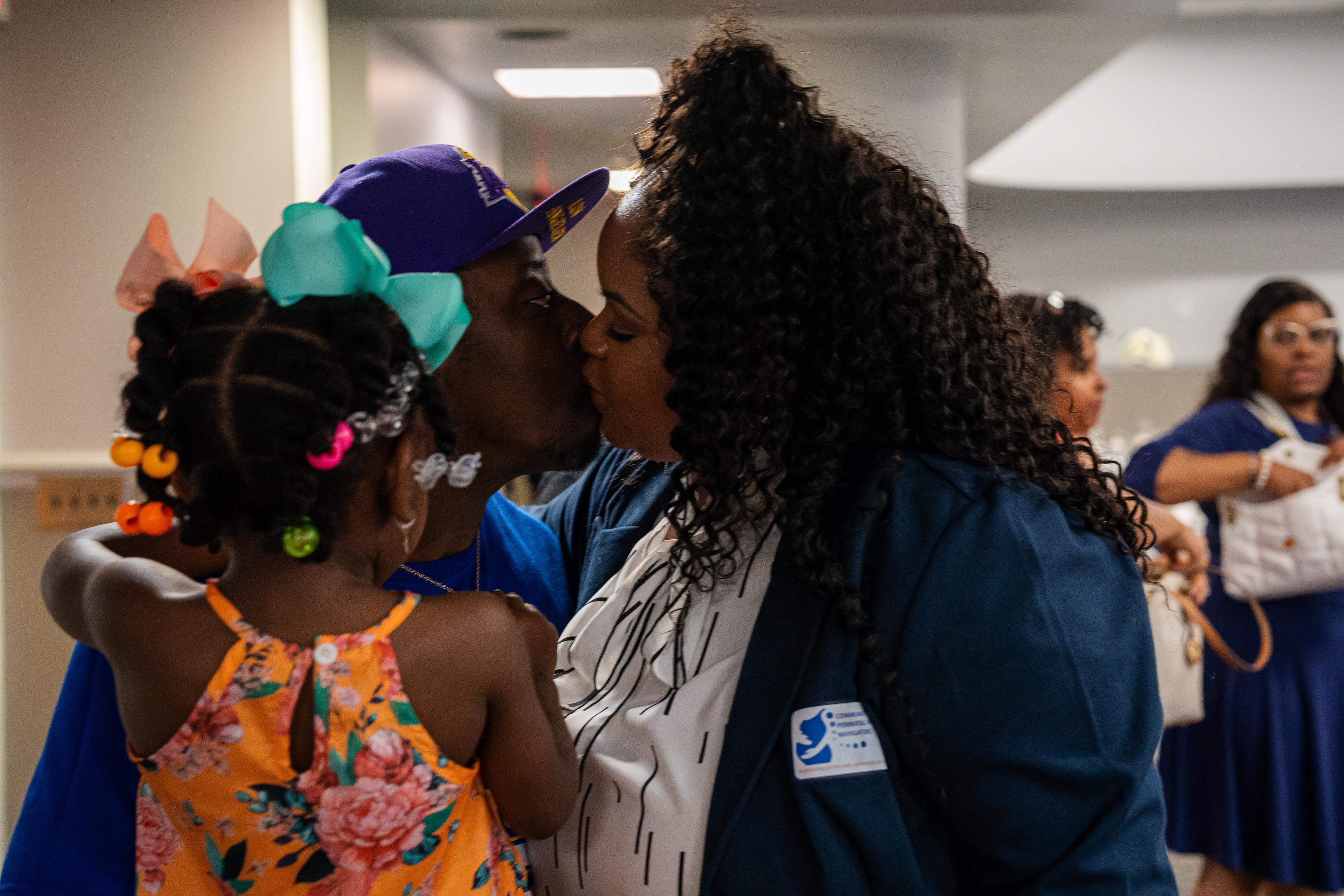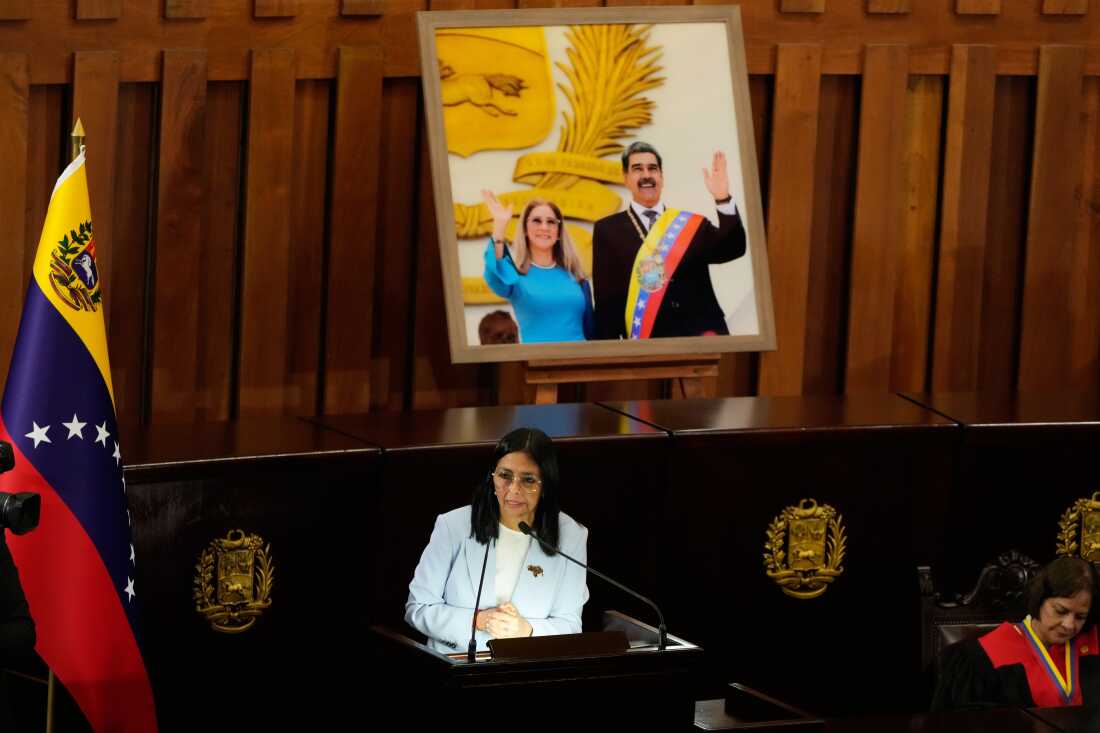When Bristeria Clark went into labor along with her son in 2015, her contractions had been regular at first. Then, they stalled. Her cervix stopped dilating. After a number of hours, docs at Phoebe Putney Memorial Hospital in Albany, Georgia, prepped Clark for an emergency cesarean part.
It wasn’t the vaginal start Clark had hoped for throughout her being pregnant.
“I was freaking out. That was my first child. Like, of course you don’t plan that,” she stated. “I just remember the gas pulling up to my face and I ended up going to sleep.”
She remembered feeling a rush of reduction when she woke to see that her child boy was wholesome.
Clark, a 33-year-old nursing scholar who additionally works full-time in county authorities, had one other C-section when her second little one was born in 2020. This time, the cesarean was deliberate.
Clark stated she’s grateful the physicians and nurses who delivered each her infants had been type and caring throughout her labor and supply. However wanting again, she stated, she needs she had had a doula for one-on-one help by means of being pregnant, childbirth, and the postpartum interval. Now she desires to present different ladies the choice she didn’t have.
Clark is a member of Morehouse College of Medication’s top quality of rural doulas, referred to as Perinatal Affected person Navigators.
This system just lately graduated a dozen members, all Black ladies from southwestern Georgia. They’ve accomplished greater than 5 months of coaching and are scheduled to start working with pregnant and postpartum sufferers this 12 months.
“We’re developing a workforce that’s going to be providing the support that Black women and birthing people need,” Natalie Hernandez-Inexperienced, an affiliate professor of obstetrics and gynecology at Morehouse College of Medication, stated on the doula graduation ceremony in Albany, Georgia.
Albany is Morehouse College of Medication’s second Perinatal Affected person Navigator program web site. The primary has been up and working in Atlanta since coaching started within the fall of 2022.
Georgia has one of many highest charges of maternal mortality within the nation, based on an evaluation by KFF, a well being info nonprofit that features KFF Well being Information. And Black Georgians are greater than twice as doubtless as white Georgians to die of causes associated to being pregnant.
“It doesn’t matter whether you’re rich or poor. Black women are dying at [an] alarming rate from pregnancy-related complications,” stated Hernandez-Inexperienced, who can be govt director of the Heart for Maternal Well being Fairness at Morehouse College of Medication. “And we’re about to change that one person at a time.”
The presence of a doula, together with common nursing care, is related to improved labor and supply outcomes, decreased stress, and better charges of affected person satisfaction, based on the American Faculty of Obstetricians and Gynecologists.
A number of research additionally hyperlink doulas to fewer costly childbirth interventions, together with cesarean births.

Doulas aren’t medical professionals. They’re educated to supply schooling in regards to the being pregnant and postpartum intervals, to information sufferers by means of the well being care system, and to offer emotional and bodily help earlier than, throughout, and after childbirth.
Morehouse College of Medication’s program is amongst a rising variety of related efforts being launched throughout the nation as extra communities look to doulas to assist tackle maternal mortality and poor maternal well being outcomes, significantly for Black ladies and different ladies of coloration.
Now that she has graduated, Clark stated she’s wanting ahead to serving to different ladies in her neighborhood as a doula. “To be that person that would be there for my clients, treat them like a sister or like a mother, in a sense of just treating them with utmost respect,” she stated. “The ultimate goal is to make them feel comfortable and let them know ‘I’m here to support you.’” Her coaching has impressed her to develop into an advocate for maternal well being points in southwestern Georgia.
Grants fund Morehouse College of Medication’s doula program, which prices $350,000 a 12 months to function. Graduates are given a $2,000 coaching stipend and this system locations 5 graduates with well being care suppliers in southwestern Georgia. Grant cash additionally pays the doulas’ salaries for one 12 months.
“It’s not sustainable if you’re chasing the next grant to fund it,” stated Rachel Hardeman, a professor of well being and racial fairness on the College of Minnesota College of Public Well being.
13 states cowl doulas by means of Medicaid, based on the Georgetown College Heart for Youngsters and Households.
Hardeman and others have discovered that when Medicaid applications cowl doula care, states save hundreds of thousands of {dollars} in well being care prices. “We were able to calculate the return on investment if Medicaid decided to reimburse doulas for pregnant people who are Medicaid beneficiaries,” she stated.
That’s as a result of doulas may also help cut back the variety of costly medical interventions throughout and after start, and enhancing supply outcomes, together with decreased cesarean sections.
Doulas may even cut back the chance of preterm start.
“An infant that is born at a very, very early gestational age is going to require a great deal of resources and interventions to ensure that they survive and then continue to thrive,” Hardeman stated.
There’s rising demand for doula companies in Georgia, stated Fowzio Jama, director of analysis for Wholesome Moms, Wholesome Infants Coalition of Georgia. Her group just lately accomplished a pilot research that provided doula companies to about 170 Georgians lined underneath Medicaid. “We had a waitlist of over 200 clients and we wanted to give them the support that they needed, but we just couldn’t with the given resources that we had,” Jama stated.
Doula companies can price a whole lot or hundreds of {dollars} out-of-pocket, making it too costly for a lot of low-income folks, rural communities, and communities of coloration, lots of which undergo from shortages in maternity care, based on the March of Dimes.
The Wholesome Moms, Wholesome Infants research discovered that matching high-risk sufferers with doulas — significantly doulas from related racial and ethnic backgrounds — had a constructive impact on sufferers.
“There was a reduced use of pitocin to induce labor. We saw fewer requests for pain medication. And with our infants, only 6% were low birth weight,” Jama stated.
Nonetheless, she and others acknowledge that doulas alone can’t repair the issue of excessive maternal mortality and morbidity charges.

States, together with Georgia, must do extra to deliver complete maternity care to communities that want extra choices, Hardeman stated.
“I think it’s important to understand that doulas are not going to save us, and we should not put that expectation on them. Doulas are a tool,” she stated. “They are a piece of the puzzle that is helping to impact a really, really complex issue.”
Within the meantime, Joan Anderson, 55, stated she’s excited to get to work supporting sufferers, particularly from rural areas round Albany.
“I feel like I’m equipped to go out and be that voice, be that person that our community needs so bad,” stated Anderson, a graduate of the Morehouse College of Medication doula program. “I am encouraged to know that I will be joining in that mission, that fight for us, as far as maternal health is concerned.”
Anderson stated that sometime she desires to open a birthing middle to offer maternity care. “We do not have one here in southwest Georgia at all,” Anderson stated.
Along with offering help throughout and after childbirth, Anderson and her fellow graduates are educated to evaluate their sufferers’ wants and join them to companies equivalent to meals help, psychological well being care, transportation to prenatal appointments, and breastfeeding help.
Their work is prone to have ripple results throughout a largely rural nook of Georgia, stated Sherrell Byrd, who co-founded and directs SOWEGA Rising, a nonprofit group in southwestern Georgia.
“So many of the graduates are part of church networks, they are part of community organizations, some of them are our government workers. They’re very connected,” Byrd stated. “And I think that connectedness is what’s going to help them be successful moving forward.”
This reporting is a part of a fellowship with the Affiliation of Well being Care Journalists supported by The Commonwealth Fund. It comes from a partnership that features WABE, NPR, and KFF Well being Information.




